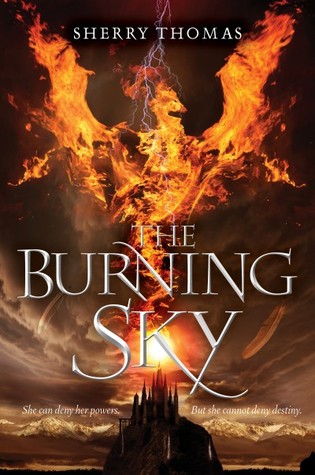by Swati Avasthi; graphics by Craig Phillips
Knopf BFYR, September 24 2013
young adult contemporary thriller
Summary (from Goodreads, b/c it's stellar):
Before: Corey, Holly, and Savitri are one unit—fast, strong, inseparable. Together they turn Chicago concrete and asphalt into a freerunner’s jungle gym, ricocheting off walls, scaling buildings, leaping from rooftop to rooftop.
But acting like a superhero doesn’t make you bulletproof...
After: Holly and Savitri are coming unglued. Holly says she's chasing Corey's killer, chasing revenge. Savitri fears Holly's just running wild—and leaving her behind. Friends should stand by each other in times of crisis. But can you hold on too tight? Too long?
The cover:
The overlay of illustrated graphic on top of the photograph of the girl's face is a wee bit messy, but excellent in that it combines the best aspects of both: the face avoids being nondescript and boring but conveys tone (look at her expression!) and mystery, and the illustration hints at the graphic content and the, well, actual content, freerunning. There's even colour, thanks to the girl's red hair, and the fonts are nice and discreet.
The book:
I read and adored Swati Avasthi's first book,
Split, based off of
Audrey's recommendation, and so was very excited for this one. Plus, it has sections of graphics, like mini comic strips, which I thought was a wonderful (and brave) decision on the part of the publisher! But I'd seen some mixed reviews, so I went into
Chasing Shadows with my expectations mostly tempered.
Chasing Shadows is about the friendship between Holly and Savitri and the people they are, together and apart. Thus, it's good that both girls are well-developed. Chapters alternate between their first-person narrations, and both voices are very unique; Holly uses capital letters that emulate the way she thinks and Savitri makes lists. And once Holly's mental descent begins, things get truly chilling — Avasthi allows her mindset to get murkier and murkier, while Savitri's confusion escalates the eerie atmosphere. It's a rare inside look into a mentally ill protagonist's downward slope, although I'm not sure how accurate the representation is.
However, this also has its downside. Even though the pacing isn't exactly slow, the plot feels trajectory-less, like it's all smoke and no fire. Evidently, the focus is supposed to be on Holly's frame of mind, and it succeeds in this part, but the result is that the murder mystery lacks hook or engagement. Though the eventual revealing of the circumstances of Corey's death are appropriately dramatic, the distance there feels like a flat plane, broken up only by the two protagonists' occasional, wearing fights.
The graphics are a boon in balancing the novel, fortunately. Craig Phillips' sleek black and white illustrations are simple and evocative, helping the reader to visualize the images inside Holly's mind as she struggles with Corey's death. This is also a good time to mention the Hindu mythology which Avasthi weaves in (including Savitri's namesake) which both characters use to reflect upon their choices and themselves, and the theme of superheroes/superheroism becomes a contentious topic for Holly as well.
The denouement, like the overal story arc, is straightforward but not too neat at the same time, a realistic end for an ambitious book. Despite its drawbacks, I would recommend anyone giving
Chasing Shadows a try: the fresh format and fascinating mix of topics make for one unique novel.
Ethnic balance: 4 out of 5. Savitri's race is relevant in all the right ways.
Rating:
3.4 out of 5














